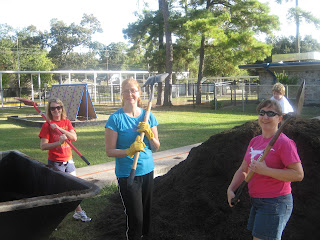By Carl Azuz, CNN
(
CNN) - During the average school day, teachers are with children as many waking hours as parents are. But many educators believe there’s a short in the communication lines between themselves and parents. When asked what they’d want parents to know about education, not all of the teachers we spoke to wished to be named - but they did share many common concerns from the classroom.
1. We're on the same team
First and foremost, teachers want students to thrive in the classroom, and they could use your help.
Jennifer Bell, a 7th grade social studies teacher in Tennessee, suggests that parents do all they can to ensure that students are doing their homework, exercising, eating well and sleeping. Whether students come to class tired or ready to learn can hinge on parents’ involvement. “We need their support,” she says. “We can’t do this on our own.”
In the words of an elementary school teacher from Georgia, “We are professionals. Teaching children is our area of expertise. Your child benefits more when you support me.”
And while educators expect students to make mistakes, Mississippi teacher Beth Wilbanks Smith asks parents to help them learn from those mistakes. “They will grow to be productive citizens if we all work as a unified force,” she writes.
2. Curriculum isn’t always up to us
One aspect of education that teachers say many parents don’t realize is that there’s not much wiggle room in classroom curriculum.
Forty-five states have adopted
The Common Core State Standards. As a result, Bell says that teachers aren’t always responsible for the pace or the material. What they are responsible for: teaching the material itself and the test scores that result.
Parents may not agree with the education guidelines set by state or federal government, and many teachers don’t either. A Georgia educator told us, “Legislators and politicians are not educators; they make decisions regarding education without the knowledge of how it will impact student learning.”
So teachers ask that parents show understanding when addressing issues that educators do not have the power to change.
3. Share the responsibility
Something educators don’t want is for parents to have a combative approach to problems that arise at school.
A pair of Georgia elementary school teachers said that a student tells his side of the story through his own point of view. In order to get the whole story and avoid any misunderstandings, it’s important to objectively approach the educator.
A junior high school teacher from Missouri echoes this. “The national rhetoric lately in politics, movies, etc. has really put teachers on the defensive, and I think parents today are more likely to try and place blame on a teacher instead of ask their student to take more responsibility.”
This educator suggests allowing the student to both fail and take the responsibility to correct the error. “As a parent, I know this isn’t easy, but always trying to jump in and save your student won’t help them in the future.”
4. A track record doesn't guarantee a track star
“Something that has come up in conversations often lately among teachers: Past results don’t always result in future success,” writes a Missouri educator.
Teachers sometimes hear parents say that their student has always done well in a given subject, so there’s no reason why he or she should have trouble with it going forward.
But that’s not always the case, and it’s not necessarily the teacher’s fault. “This year’s concepts are very different,” the educator says, and the student “might be struggling with a more advanced concept.”
5. We know where you’re coming from
A recently retired Georgia teacher told us that 80-85% of her colleagues had children of their own. She says this gives educators compassion and insight into how a child learns. “Parents see a child. Teachers see both the child and the student. They have the ability to see multiple perspectives.”
When discussing success in the classroom, Smith also mentioned compassion as an ingredient, along with structure, order and inspiration. The recipe “makes for a dynamic environment,” she said. “I am not ‘a friend’ to my students, but I am their mentor, their confidant, and their stability while they are in my care.”
And while virtually all teachers would like to give more individualized attention to students, educators are limited by time, curriculum and class sizes. These are challenges that teachers feel some parents don’t understand.
As stated by a woman with decades of experience as both a teacher and a parent, “Your child is unique, just like everyone else’s.”
To read more about the power of parents in public school, visit
http://schoolsofthought.blogs.cnn.com/2012/10/04/the-power-of-parents-in-a-public-school/.

















































